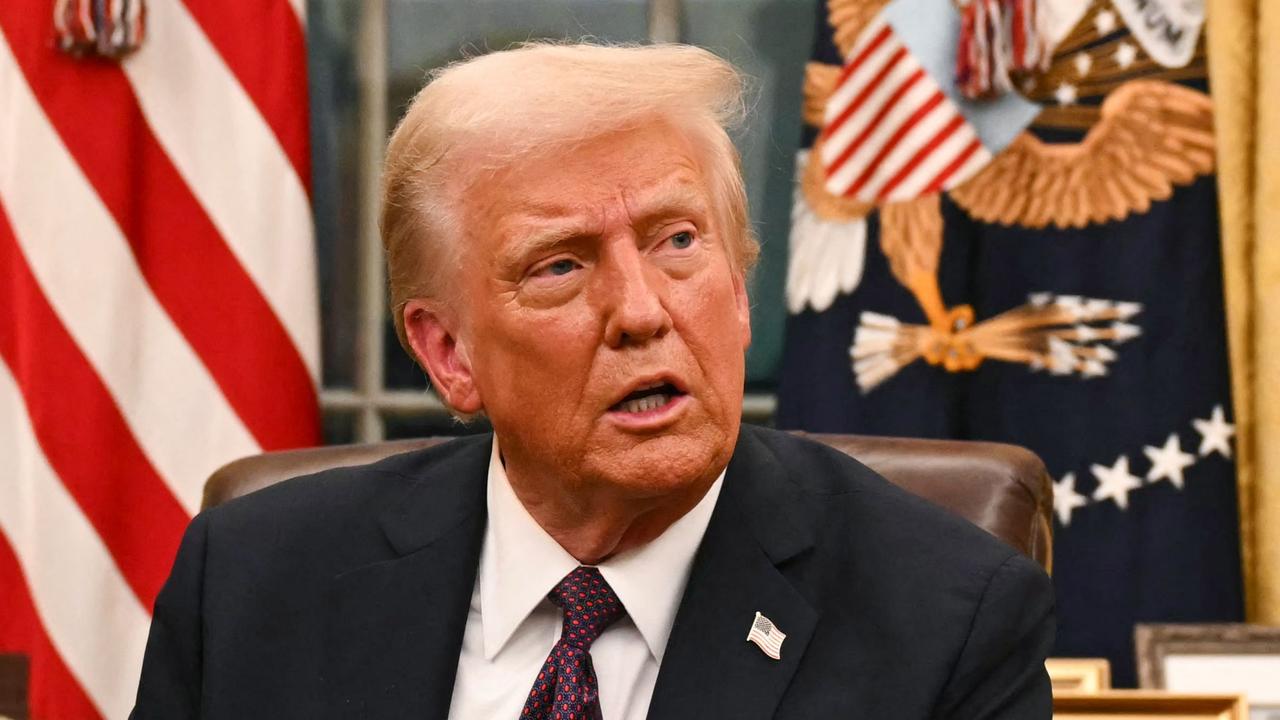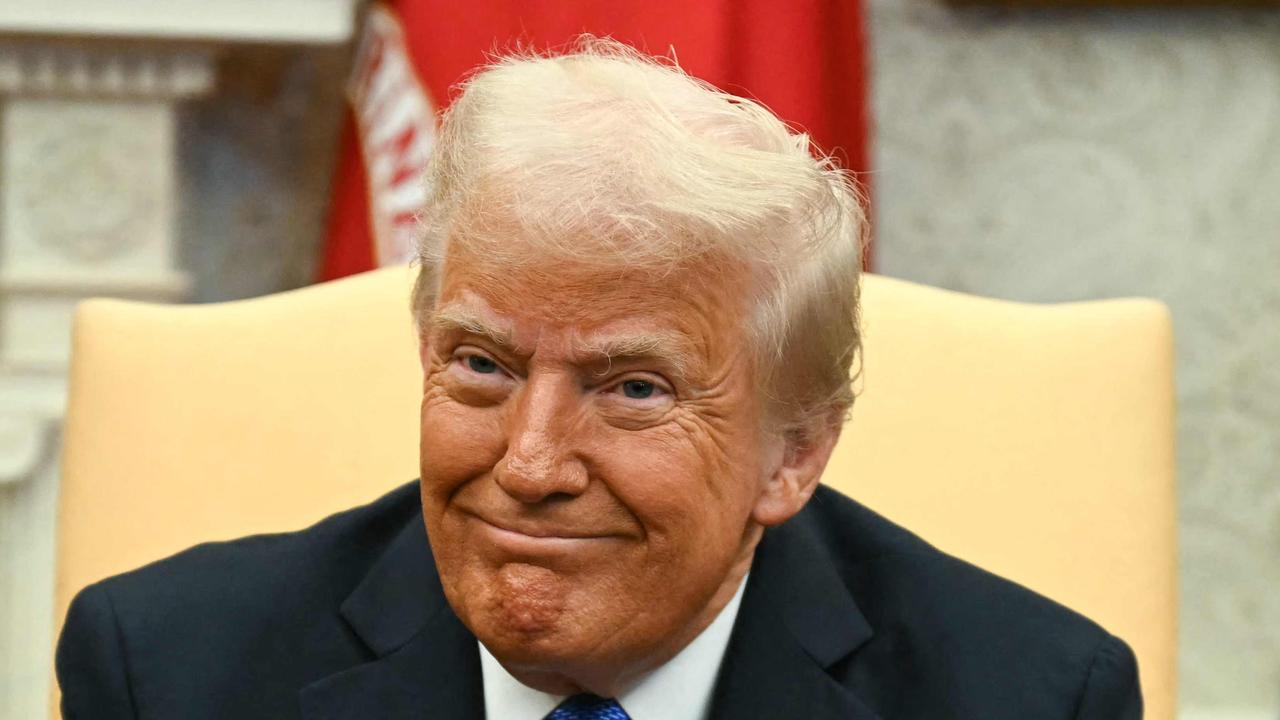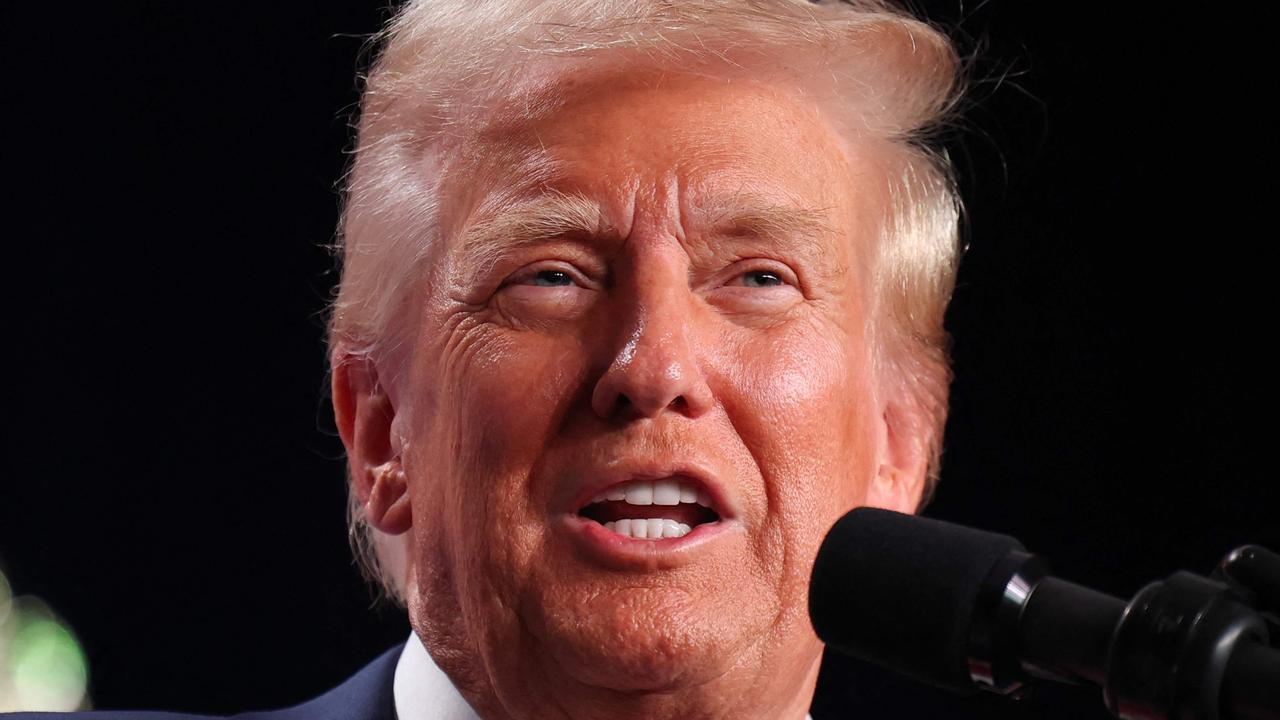Scott Morrison takes aim at China’s continuing status as a ‘developing’ country
It is one of Donald Trump’s biggest bugbears. Overnight, Prime Minister Scott Morrison risked angering China by taking America’s side.
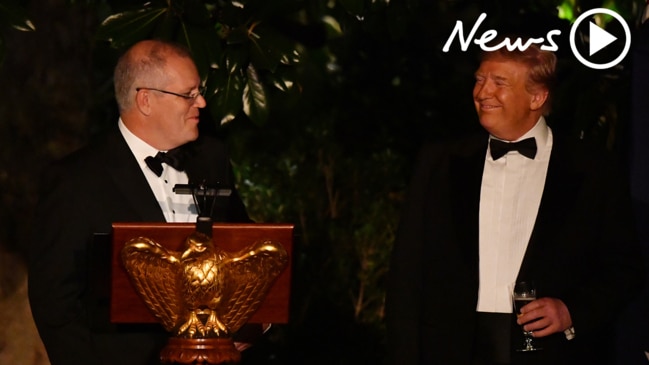
Prime Minister Scott Morrison has criticised China’s continuing status as a developing country under World Trade Organisation rules, publicly bolstering Donald Trump’s claim that the world’s second largest economy is benefiting from an “unfair” advantage.
Speaking to the Chicago Council on Global Affairs overnight during the latest leg of his trip to the United States, Mr Morrison said it was time for China to accept greater responsibility.
“China’s economic growth is welcomed by Australia and we recognise the economic maturity that it has now realised as a newly developed economy. This was the point of the world’s economic engagement with China,” Mr Morrison said.
“Having achieved this status, it is important that China’s trade arrangements, participation in addressing important global environmental challenges like the ones I just mentioned (climate change, illegal fishing and plastics pollution), that there is transparency in their partnerships and support for developing nations — all of this needs to reflect this new status and the responsibilities that go with it as a very major world power.
“The world’s global institutions must adjust their settings for China, in recognition of this new status. That means more will be expected, of course, as has always been the case for nations like the United States, who’ve always had this standing.”
It was essentially Mr Morrison’s version of the “with great power comes great responsibility” speech from Spider-Man.
RELATED: Donald Trump’s surprise for Scott Morrison
RELATED: Chinese state media threatens Australia

The WTO does not have a framework defining which countries are developing and which are already developed. Instead, nations are left to classify themselves as they see fit.
As a self-identified developing country, China receives a range of perks. For example, it gets more time to implement WTO commitments, procedural advantages in disputes and access to subsidies in certain economic sectors.
This is a real sore point for Mr Trump, who believes the size of the Chinese economy should disqualify it from such special treatment.
China has the second-highest gross domestic product (GDP) in the world, behind only the United States. It has been the largest exporter of goods every year since 2009. More than 100 of the world’s 500 largest companies are based there, and it is home to more billionaires than any other nation.
China, which is a great economic power, is considered a Developing Nation within the World Trade Organization. They therefore get tremendous perks and advantages, especially over the U.S. Does anybody think this is fair. We were badly represented. The WTO is unfair to U.S.
— Donald J. Trump (@realDonaldTrump) April 6, 2018
In July, the President issued a memorandum instructing the Office of the United States Trade Representative to push for “desperately needed reform” of the WTO’s rules.
He accused other advanced world economies of using developing country status as an excuse not to comply with those rules.
“Although economic tides have risen worldwide since the WTO’s inception in 1995, the WTO continues to rest on an outdated dichotomy between developed and developing countries that has allowed some WTO members to gain unfair advantages in the international trade arena,” the memorandum said.
“Nearly two-thirds of WTO members have been able to avail themselves of special treatment and to take on weaker commitments under the WTO framework by designating themselves as developing countries.”
The White House pointed out that seven of the 10 wealthiest economies in the world — according to its chosen measure of GDP per capita on a purchasing power parity basis — still claimed developing country status.
Those countries are Brunei, Hong Kong, Kuwait, Macao, Qatar, Singapore and the United Arab Emirates.
Mexico, South Korea and Turkey, all three of whom are members of both the G20 and OECD, also classify themselves as developing countries.
“When the wealthiest economies claim developing country status, they harm not only other developed economies but also economies that truly require special and differential treatment,” the White House said.
“Such disregard for adherence to WTO rules, including the likely disregard of any future rules, cannot continue to go unchecked.
“China most dramatically illustrates the point. Since joining the WTO in 2001, China has continued to insist that it is a developing country and thus has the right to avail itself of flexibilities under any new WTO rules.
“The United States has never accepted China’s claim to developing country status, and virtually every current economic indicator belies China’s claim.
“After years of explosive growth, China has the second largest GDP in the world, behind only the United States.
“China and too many other countries have continued to style themselves as developing countries, allowing them to enjoy the benefits that come with that status and seek weaker commitments than those made by other WTO members.”
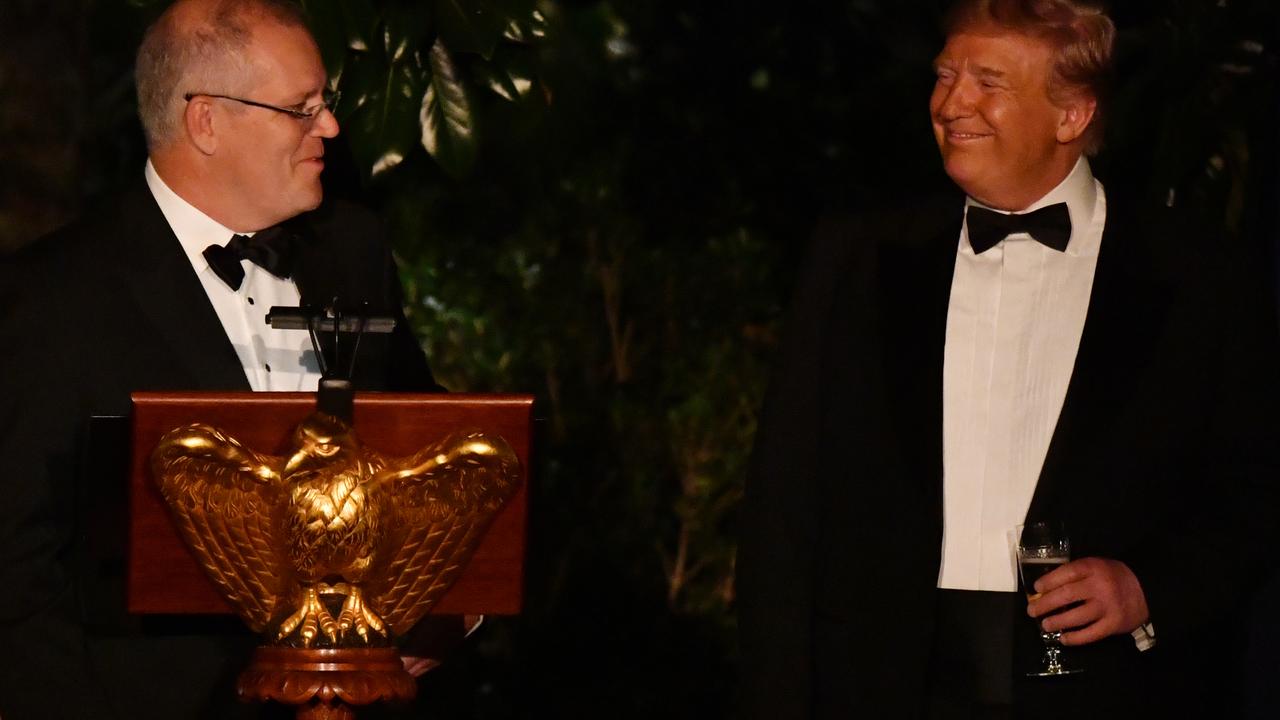
But is all this criticism of China fair?
Professor Jane Golley, acting director of the Australian Centre on China at ANU, told news.com.au Mr Morrison’s description of China overnight as “newly developed” was “not an inaccurate term”, but the full truth was more nuanced than he had implied.
“He does have a point. If you look at certain parts of China — Beijing, Shanghai, Guangzhou — it’s very hard to describe it as a developing country,” Dr Golley said.
“But there are 500 million people in rural China that bear no resemblance to the coastal megacities. There are still millions living in very difficult circumstances.”
Dr Golley pointed to another global financial institution, the World Bank, which classifies countries in accordance with their gross national income (GNI) per capita.
Under that framework, “high income economies” — the equivalent of the WTO’s developed countries — are defined as those with a GNI per capita of $US12,376 or more. China is still below that threshold.
“By the definition the World Bank has determined — headed by Western powers — that makes China a developing country,” Dr Golley said.
She said there was a belief within China that the West was seeking to arbitrarily change its own rules for no other reason than self-interest.
“There is a belief that the rules have been made by the West, they (China) are playing by the rules — and now we don’t like it, and want to change the rules. It is a little bit disingenuous,” said Dr Golley.
“I agree with Scott Morrison that it’s time to question the full set of WTO rules, but it’s not all about China being unfair. It has actually played by many of those rules.”
She took issue with Mr Morrison’s claim that China was obliged to increase its efforts to confront environmental challenges like climate change.
“China is on the cusp of being developed, with pockets of significant wealth and with one of the world’s wealthiest, if not the wealthiest government. It does have the capacity to contribute to global public good, and is already doing that,” she said.
“I think, given their level of development, the efforts that they’re putting into combating climate change are reasonable.”
China has described itself as the “largest developing country” in the world, and rejected Mr Trump’s calls to reform the WTO.
“We do not shy away from our international responsibilities and are willing to assume obligations in the WTO that are compatible with our own economic development level and capabilities,” Commerce Ministry spokesman Gao Feng said in April.
“At the same time, we will work with other developing members to uphold our fundamental rights and to voice our common voice, and safeguard our developmental interests.”
Speaking to ABC radio this morning, Labor leader Anthony Albanese suggested it would have been more appropriate for Mr Morrison to make his point from Australia, rather than the United States.
“I’m not sure that it’s constructive to send a message to China from the US in the way that it has occurred,” Mr Albanese said.
“There’s a legitimate debate about the WTO system, but we support the existing system. It has served the world well. We do want a rules-based trading system throughout the world.
“The conflict between China and the United States is one that is not in Australia’s interests. We want that to be resolved, rather than be overly partisan about it.”
Mr Albanese said China was “quite clearly still developing”.
“There are pockets of China, of course, around the coast and around its cities that are very prosperous. But it is still an emerging economy and it is growing substantially,” he said.
“If you compare per capita income with advanced economies like Australia and the United States, then it is behind those advanced economies.”
China has yet to react to Mr Morrison’s most recent comments, though it has already been critical of his state visit to the United States.
As Mr Morrison and Mr Trump hobnobbed this week, with the Australian Prime Minister predicting another “100 years” of friendship between the two nations, Chinese state media warned Australia instead risked “100 years of solitude” if it continued to strengthen its military ties with the United States.
“This Australia-US alliance will not bring the benefits Australia hopes for. This will bring a long-term military and political confrontation between Australia and Asian countries,” wrote academic Yu Lei, in a piece published by Beijing’s Global Times newspaper.
“Australia will not get the 100 years of friendship but 100 years of solitude.”
It came after Mr Trump, with Mr Morrison alongside him, told reporters China was obviously “a threat to the world in a sense”, because of its military build-up.
Dr Golley said there was an opportunity — however unlikely it might seem — for China to strike a more conciliatory tone on the WTO debate, creating some diplomatic goodwill and undercutting Mr Trump in the process.
“This is an example of where they could signal a willingness to play fairer,” Dr Golley said.
“It could really work in their favour, showing that they were giving a little; that they were willing to negotiate; recognising that they have benefited from the rules. But also playing a part in allowing some flexibility into the system.”


